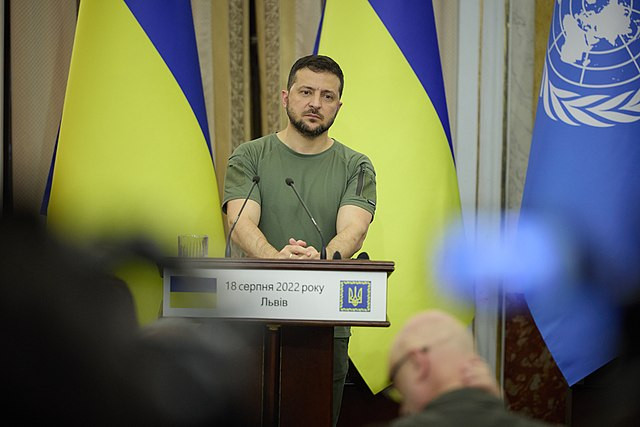Ukrainian President Volodymyr Zelenskyy is facing a backlash from civil society and European allies after signing legislation that brings two of the country's key anti-corruption agencies under the control of the Prosecutor General. The move, which critics say undermines judicial independence, triggered the largest anti-government demonstrations since Russia's full-scale invasion began in 2022.
On Tuesday, Zelenskyy approved a bill passed by parliament that effectively transfers authority over the National Anti-Corruption Bureau (NABU) and the Specialised Anti-Corruption Prosecutor's Office (SAPO) to the office of Prosecutor General Ruslan Kravchenko, a loyalist to the president. Demonstrators rallied in Kyiv, Lviv, Odesa, and Dnipro, with protesters holding signs reading "We chose Europe, not autocracy" and "My father did not die for this."
"Of course, NABU and SAPO will work," Zelenskyy said in a Telegram post. "And it is important that the Prosecutor General is determined to ensure that in Ukraine the inevitability of punishment for those who go against the law is really ensured."
Zelenskyy framed the overhaul as an effort to purge Russian influence from Ukraine's anti-corruption institutions. "Everything needs to be cleansed of this," he wrote. "There is no rational explanation why criminal proceedings worth billions have been 'hanging' for years."
But critics at home and abroad argue the measure threatens democratic progress and weakens the independence of institutions created after the 2014 Maidan Revolution-a turning point that toppled pro-Russian President Viktor Yanukovych and set Kyiv on a path toward European integration.
Transparency International Ukraine called the law a "massive setback in anti-corruption reform" and a "direct threat to Ukraine's path to the EU." The European Commission warned that financial aid to Kyiv is contingent upon tangible progress in transparency and judicial reform. "The EU provides significant financial assistance to Ukraine, conditional on progress in transparency, judicial reform, and democratic governance," said European Commission spokesperson Guillaume Mercier.
Marta Kos, European Commissioner for Enlargement, criticized the move in a social media post, writing: "The dismantling of key safeguards protecting NABU's independence is a serious step back." She described NABU and SAPO as "essential" to Ukraine's EU aspirations.
On Monday, the day before the bill was passed, Ukrainian security services raided NABU offices and SAPO, alleging Russian infiltration. The government argued these steps were necessary to secure sensitive state information. However, the timing raised concerns that the crackdown was coordinated to weaken the anti-corruption institutions before transferring their oversight.
Former foreign minister Dmytro Kuleba called it a "bad day for Ukraine." Kyiv Mayor Vitali Klitschko, long at odds with the Zelenskyy administration, joined protesters and wrote on Telegram, "It certainly does not bring it [Ukraine] closer to democracy, the rule of law, and legality - to those values for which our soldiers are dying today in a bloody struggle against the aggressor."
Klitschko accused the government of "dragging Ukraine faster and faster into authoritarianism... silencing activists and journalists." He added, "The system needs to be changed, not turned into a bulldog of the authorities."
The bill was passed in the Verkhovna Rada with 263 votes in favor. Thirteen lawmakers voted against, 13 abstained, and 35 did not participate. It received backing from Zelenskyy's Servant of the People party, as well as from former Prime Minister Yulia Tymoshenko's Batkivshchyna and the pro-Russian Opposition Platform - For Life.






